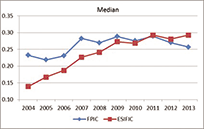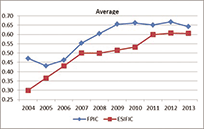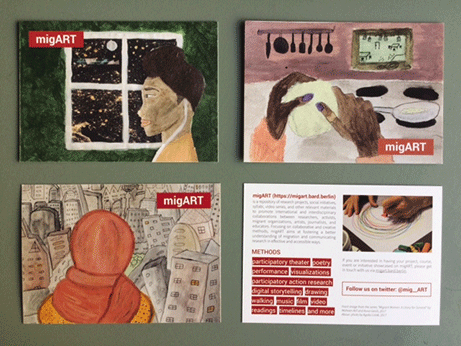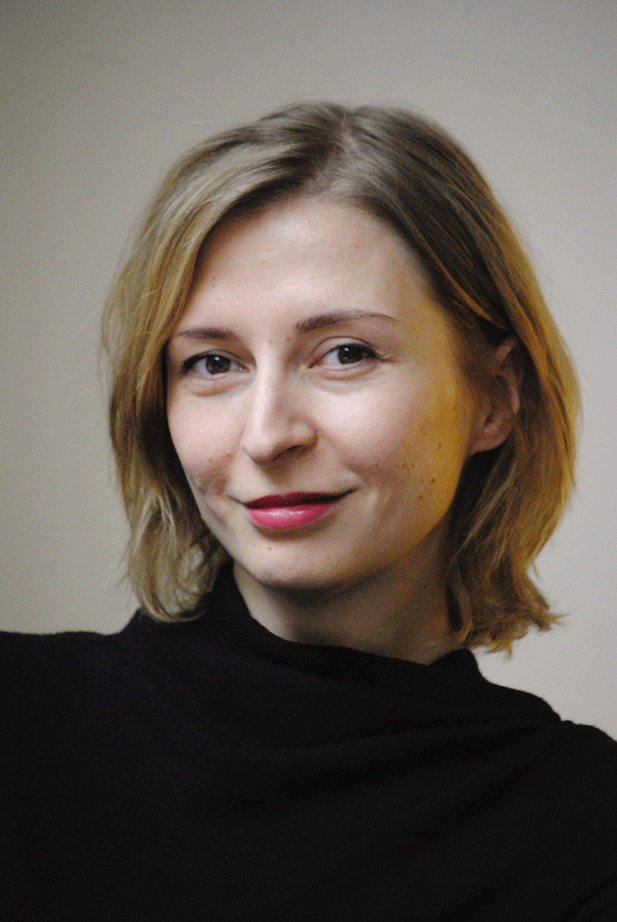Research September 2018
NEWSLETTER
AN ANALYSIS OF MSCA FELLOWS’ PUBLICATION BEHAVIOUR
"Be less curious about people and more curious about ideas" (Marie Skłodowska Curie)
The European Commission's Joint Research Centre's recent assessment of Marie Sklodowska Curie Action (MSCA) fellows’ publication behaviour may appear to contradict Professor Skłodowska Curie's wish since it focuses on individual MSCA fellows. But it doesn’t. It analyses the fellows’ publications. Even if it does not analyse the content, by engaging in citation analysis it proxies the recognition of the value of this content by peers. The limitations of publication and citation analysis for assessing individual researcher performance are well known. However, these limitations may be overcome by analysing the performance of a large number of fellows.

The JRC researchers Koen Jonkers, Peter Fako, Juan Carlos del Rio and Thomas Zacharewicz worked together with two renowned experts in the field of quantitative science analysis - Professors Ulf Sandstrom of KTH Royal Inst Technology in Stockholm and Peter van den Besselaar of Vrije Universiteit van Amsterdam. Together they analysed the productivity and impact of two groups of MSCA fellows.
The first group originated from countries in Northern Western Europe with relatively advanced research systems as proxied by the average citation impact of their publications.The second group of MSCA fellows originated from countries in Central, Eastern and Southern Europe where research systems and field-weighted citation impact scores tend to be lower.
A second motivation for focussing on these two groups of countries is that the first grouping tends to include countries that host MSCA fellows, whereas the second group of countries send out more fellows than they receive. Therefore, most fellows appear to use the MSCA grant to move to a country with a more developed research system – though pockets of excellence exist also in the second group of countries. Spain, for instance, hosts a considerable number of fellows.
Jonkers et al (2018) observe that there is a consistent increase in the impact of articles published by MSCA fellows before and after the grant. This holds true for all fields and for researchers from both groups of countries. However, it is impossible to conclude whether this is due to the MSCA grant or other factors, such as seniority.
At the time that fellows obtain the grant, there is a significant difference between the scientific impact of the two groups of MSCA fellows. Researchers from Northwest Europe have a significantly stronger pre-grant performance than researchers from South-eastern Europe. Over time however, this difference starts to fade. Whereas the median performance difference disappears there is no longer a difference in the mean performance. The reason for this is that there are more "top" performers in North-western Europe after the grant, raising the mean value. These outliers do not influence the median scores to the same extent.


(Jonkers et al, forthcoming)
A potential explanation for the initial performance gap may be that researcher performance is influenced by the research environment. A researcher who is trained in a system with a lower average impact may have the same level of potential as researchers from more developed system in terms of creativity and scientific skills. However, this may not be reflected yet in terms of the researcher’s publications attracting as much citations as those of a slightly better performing researcher from a more developed system.
Differences in past performance scores of successful applicants from North-western Europe and from South, Central and Eastern European countries respectively, do not necessarily imply sub-optimal selection of one group over the other. The findings also suggest that both groups attain equal median performance after the grant. If panels look mainly at the creativity and talent of the applicants, a lower past publication performance can be compatible with the application of equal criteria for the applicants. Evaluators are instructed to base their assessments on applicant potential and, among others, the quality of the host organisation. For instance, they are not asked to review potential based on bibliometric assessments of past performance alone. They may take into account other considerations for assessing scientific potential.
International collaboration is one of the channels through which applicants from the second group of countries may achieve their relative performance improvements. This collaboration occurs among others with experts from North-western Europe and is believed to persist after the end of the grant. This is in line with MSCA programme goals for strengthening the capabilities of individual European researchers and contributing to a more integrated European Research Area.
The JRC report also compares performance development of MSCA fellows and successful applicants of other grant schemes such as the European Research Council and a national grant schemes. Expanding this analysis with pooled micro-data could be a potential follow up to this study. The JRC report has formed the basis for an article that is currently under review and which includes further quantitative analysis of the data.
The full report can be found at Jonkers, K., Fako, P., Isella, L., Zacharewicz, T., Del Rio, JC, Sandstrom, U., Van den Besselaar, P., 2018, A comparative analysis of the publication behaviour of MSCA fellows, Brussels: European Commission https://rio.jrc.ec.europa.eu/en/library/comparative-analysis-publication-behaviour-msca-fellows
KOEN JONKERS
DISCOVER MIGART, A PLATFORM FOR MIGRATION ACTIVISM, RESEARCH AND TEACHING
Agata Lisiak and Elena Vacchelli are behind the migART platform, which is designed to build a community of researchers around migration. Should you work on this topic, don’t hesitate to get in touch with them!
ABOUT AGATA LISIAK
I grew up in Poland, but studied and conducted research internationally (Denmark, Germany, Holland, Taiwan, Austria and the UK). I am now based in Berlin where I teach migration and urban studies at Bard College Berlin where I’m also Academic Director of the Internship Program. I work at the intersection of migration studies, urban sociology, visual cultures and gender studies, and I have even written about Taiwanese cinema, Polish hip-hop, cultural memory in post-socialist cities, xenoglossophobia, austerity, emotional labour, and invisible femininities, among many other topics. I am currently working on a book based on my research project Immigrant Mothers As Agents of Change. In 2013-2014, I was a Marie Curie Actions fellow at the Institute for Human Sciences in Vienna working on a project aimed to explore the gendering of contemporary revolutionary iconographies.

ABOUT MIGART
When conducting our own migration research projects my colleague Elena Vacchelli and I kept coming across inspiring research, activist, and pedagogical projects that creatively and collaboratively engage with migration. The variety of methods people invent, develop, question, revise and reinvent to research migration is quite breathtaking: participatory theatre, digital storytelling, drawing, photography, psychogeography, sonic walks, quilt-making and many more.
We thought it would be useful for research, activist and teaching communities to have a space where all these amazing projects could be found. Since no such space existed, we decided to create it ourselves.
Our immediate goal was fairly straightforward: to showcase past and ongoing activities (research projects, social initiatives, syllabi, among others) and share information about upcoming events, grant opportunities and new publications. Our bigger goal was more ambitious: to help build a community of researchers, activists and educators and to help promote a cross-fertilisation of ideas and research practices.
ELENA VACCHELLI, CO-FOUNDER OF THE PLATFORM
Elena Vacchelli is Associate Professor in Gender and Migration at the University of Greenwich. Her teaching and research interests include urban diversity and social inequality; gender, space and embodiment; and art-based and digital research methodologies. Elena has recently published a book entitled Embodied Research in Migration Studies (Policy Press 2018) that engages with some of the issues addressed in migART.
THE MIGART WEBSITE
For the sake of clarity, migART is divided into three main sections: Activism, Research and Teaching. Each section is devoted to ongoing and recent projects using creative and collaborative methods. We recognise, of course, that migration research, activism, and teaching often overlap and cannot be bound to only one of these categories. This is why you find some projects cross-referenced. We also have a section called ‘People’ in which we include our contributor’s contact information. There is also a News page where we post information about upcoming events that could be of interest to our visitors.
MIGART’S PROMOTION
We have promoted migART at several workshops and conferences, including the recent ISA congress in Toronto, the Feminist Geographies in Montreal, and at the Right to the City event organised by the Atlas of Transitions in Bologna. If you’re organising a migration-related event and would like to include us, please get in touch! Elena is based in London, I’m based in Berlin, but we can also join events remotely via a video conference or travel, if possible. One of the easiest way to find out about new developments on migART is to follow us on twitter at @mig__ART.
GET INVOLVED!
migART was created as a repository of activist, research and teaching projects that make use of creative and collaborative methods to engage migrant communities, better understand migration, and communicate research findings in accessible and, when possible, interactive ways.
Agata Lisiak

If you are working on or have recently completed a project that fits this general description, please get in touch with us to discuss how we can feature it on our website. Your project will be introduced to an international, interdisciplinary audience, perhaps even future collaborators!
For information about migART, please consult the website: https://migart.bard.berlin/